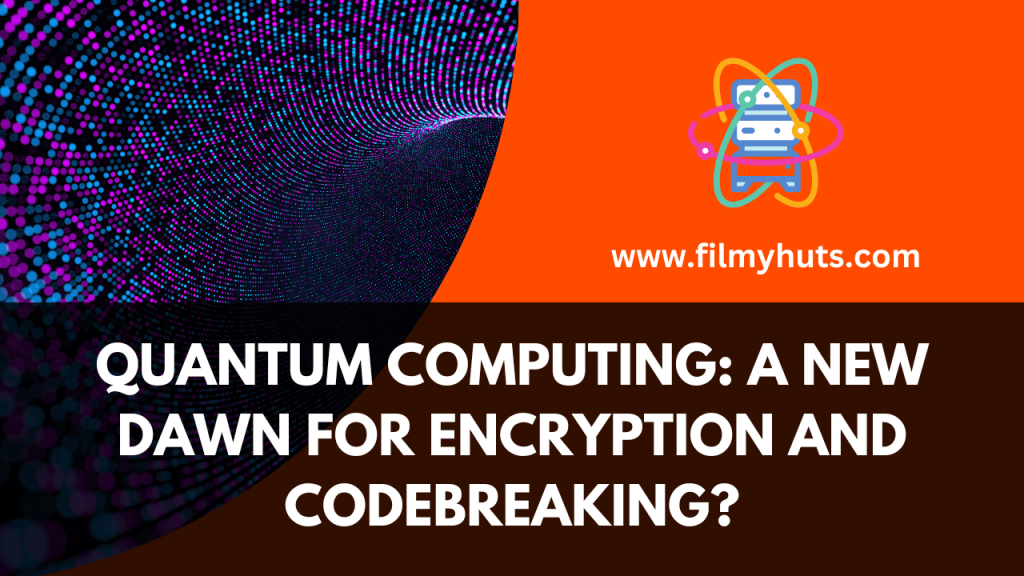As we dive headlong into the age of quantum computing, we are compelled to examine an intriguing facet that this groundbreaking technology introduces: factorization. By leveraging the inherent capabilities of quantum physics, quantum computers present unprecedented potential for revolutionizing this area of mathematics, thereby having profound implications for numerous fields, particularly cryptography and cybersecurity.
Our comprehensive exploration of ‘What is a Use Case of Factorization in Quantum Computing?’ – a topic that holds great significance in today’s world. Join us as we delve deep into its various aspects and shed light on its importance. Let’s get started!
Understanding the Magic of Factorization in Quantum Computing

Simply put, factorization involves breaking down a number into its prime factors – an ostensibly easy task for small numbers but an increasingly complex one as the numbers grow larger. Classical computers struggle with factorization due to their sequential processing nature. With their immense parallel processing power, quantum computers stand to redefine the game, cracking the problem of factorization with relative ease and blazing speed, thanks to the principles of quantum superposition and entanglement.
Shor’s Algorithm: The Poster Child of Quantum Factorization
Undeniably, the most recognized application of quantum factorization is exemplified by Shor’s algorithm. Proposed by the renowned mathematician Peter Shor in 1994, this algorithm can factorize large integers exponentially faster than the most efficient classical algorithms, thereby threatening the foundations of current encryption systems like RSA.
The algorithm leverages the phenomenon of quantum parallelism – processing multiple calculations simultaneously – to significantly speed up the factorization process. By creating a superposition of states and utilizing quantum interference, Shor’s algorithm identifies the periodicity of a function related to the factors of a given number, thereby solving the factorization problem in polynomial time.
Quantum Computing: A New Dawn for Encryption and Codebreaking?

The staggering factorization speed promised by Shor’s algorithm raises the exciting prospect of breaking RSA encryption, the widely adopted cryptographic system that relies on the difficulty of factorization as its security basis. If quantum computers become powerful enough to run Shor’s algorithm efficiently, they could decipher RSA encrypted messages, heralding a radical shift in the landscape of cybersecurity.
Harnessing Quantum Computing for Solving Complex Problems
Beyond cryptography, quantum factorization’s powerful applications extend to other intricate computations and optimizations. The quantum realm’s principles of superposition and entanglement allow for the simultaneous exploration of numerous solutions, aiding in tackling problems where classical computers falter.
The Impact and the Future: Embracing the Quantum Revolution
Given its profound implications, quantum factorization has been the focus of vigorous research and development, striving to surmount the physical and technological challenges in building robust quantum computers.
One such challenge is ‘decoherence,’ where quantum systems lose their quantum properties due to interactions with the environment. Despite these hurdles, the quantum computing realm has witnessed significant breakthroughs and advancements, showcasing its enormous potential and resilience.
The potential of quantum factorization, whether it’s for breaking encryption, tackling complex problems, or revolutionizing scientific simulations, is a testament to quantum computing’s transformative power. While we must navigate the path with careful deliberation to ensure the responsible and secure adoption of this technology, there’s no denying that we stand on the brink of a quantum revolution that promises to redefine our computational universe.
Quantum Factorization vs. Classical Methods: Speed and Accuracy
The primary advantage that quantum factorization holds over classical methods lies in its speed and accuracy. In classical computers, the best known algorithm for factorizing large numbers is the General Number Field Sieve (GNFS). This algorithm’s time complexity grows exponentially with the size of the input, making it inefficient for larger numbers.
In contrast, quantum computers, employing algorithms like Shor’s, offer an exponential speedup, solving factorization problems in polynomial time. This immense speed difference between quantum and classical methods for factorization becomes more apparent as the size of the numbers to be factorized increases.
Prerequisites for Understanding Factorization in Quantum Computing
To fully comprehend factorization in quantum computing, one must have a basic understanding of quantum physics principles, including quantum superposition, entanglement, and quantum interference. Additionally, a fundamental understanding of classical encryption methods, computational complexity, and basic linear algebra would be beneficial.
Quantum Factorization and Hardware Specificity
With the evolution of quantum computing, various platforms and hardware designs have emerged, including transmon qubits, topological qubits, and trapped ions, among others. Quantum factorization algorithms, including Shor’s algorithm, can generally be implemented on these different types of quantum hardware. However, the efficiency and accuracy of the factorization might vary depending on the specific properties of the quantum hardware, such as coherence times, gate fidelity, and error rates.
Real-world Implementations of Quantum Factorization
Practical implementation of quantum factorization has been a significant challenge due to the requirement of a large number of qubits and quantum error correction methods. Nevertheless, there have been instances of quantum factorization on smaller scales.
For instance, in 2001, a team led by researchers at IBM successfully implemented Shor’s algorithm on a 7-qubit quantum computer to factorize the number 15. While this may seem trivial compared to the capabilities of modern classical computers, it was a remarkable proof-of-concept demonstration of quantum factorization.
Quantum Factorization Beyond Numbers: Towards New Horizons
Quantum factorization’s potential extends beyond the realm of numbers. It can be used for solving various complex mathematical problems, including elliptic curve discrete logarithm problems, principal ideal problems in number fields, and more. The powerful processing capabilities of quantum computers could bring forth solutions to currently intractable problems, thus opening new frontiers in multiple scientific domains.
Frequently Asked Questions About What is a Use Case of Factorization in Quantum Computing?
Q: How does factorization work in quantum computing?
A: Quantum computing leverages the principles of quantum physics – superposition and entanglement – to process multiple calculations simultaneously, significantly speeding up factorization.
Q: Can quantum computers break RSA encryption through factorization?
A: In theory, quantum computers could decipher RSA encryption through factorization, particularly by implementing Shor’s algorithm. However, the current state of quantum technology is not advanced enough to achieve this feat.
Q: Are there any real-world applications of quantum factorization?
A: While quantum factorization’s potential is immense, its practical applications are yet to be fully realized, owing to the challenges in building robust quantum computers. It holds promise in fields like cryptography, optimization, and scientific simulations.
Q: What are the limitations or challenges of factorization in quantum computing?
A: Some challenges include overcoming decoherence, improving qubit stability, and scaling up the quantum systems.
Also Read: How will Quantum Computing Affect Artificial Intelligence Applications?
Final Words: A Quantum Leap into the Future
Quantum computing holds the potential to revolutionize our approach to computation and problem-solving. With the specific use case of factorization, quantum computing brings forth the prospect of faster, more efficient solutions to complex problems. While the field is still in its nascent stages and there are significant challenges to overcome, the potential rewards make it an exciting area of research and development.
As we grapple with the implications and applications of quantum factorization, it’s clear that we are standing at the cusp of a new era in computing. This quantum leap promises to redefine what’s possible, opening up new horizons for cryptography, computational mathematics, and beyond. Despite the challenges, there’s no denying the excitement and potential that quantum computing and factorization hold for the future.
In wrapping up this article, we aspire to have given you a comprehensive understanding of “What is a Use Case of Factorization in Quantum Computing?” and its implications, arming you with the knowledge necessary to navigate this area successfully.

Tasha Harshman: As a talented blogger and writer, she weaves words into magic, leaving readers spellbound. With every article, Tasha’s storytelling prowess and unique perspective ignite imagination and spark curiosity. Prepare to be transported to extraordinary worlds.


